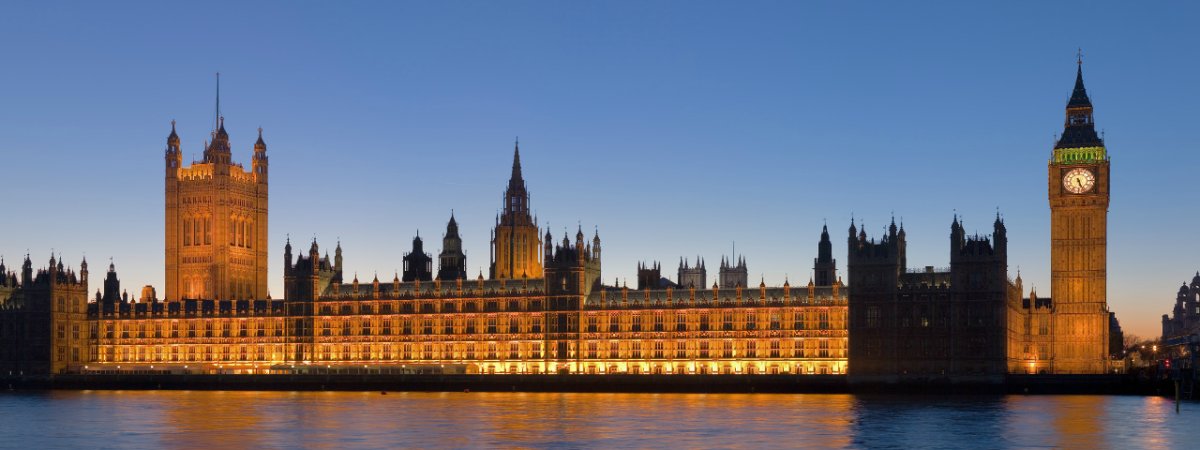IEA responds to Labour Party’s manifesto
SUGGESTED



“With today’s tax burden now at a 50-year high, the Labour Party’s plan to hike taxes and borrow hundreds of billions of pounds cannot end well for the taxpayer.
“The creation of a financial transactions tax, a windfall tax, and hikes in corporation tax are likely to hit the economy hard, result in higher costs for consumers (whom often carry the burden of taxes on business), and may disincentivise productive economic behaviour, resulting in falling short of the revenue they expect to raise.
“These tax hikes are in addition to Labour’s pledge to borrow hundreds of billions of pounds to fund its spending plans; this is not ‘free money’ but rather tax that will need to be paid back by future generations.
“Labour’s combination of a high tax, big-state society – characterised by renationalisation of major industry – would be a strange step back into the dark ages of state controlled industrial strategy.”
Commenting on Labour’s plan to create one million ‘new green jobs’, IEA Economics Fellow Julian Jessop said:
“There are plenty of good reasons to increase investment in green technology, but with the right incentives it can be delivered far more effectively by the market than the state. It is misguided to view green energy policy as an exercise in job creation when employment is already at record levels.”
Commenting on Labour’s plan to abolish tuition fees, IEA Director General Mark Littlewood said:
“Scrapping tuition fees is a highly regressive policy which favours students from wealthy backgrounds far more than it helps the poorest students attending university.
“It is right that those benefiting from their degree should have some financial stake in attaining it. Why should non-university educated hairdressers and waiters see their tax money used to pay for the education of future solicitors, accountants and investment bankers?
“Thanks to tuition fees, we are seeing those from the most deprived areas in Britain become greater, not lesser, proportions of the university population. These places are dependent on tuition fees, both thanks to the price mechanism and the additional revenue that tuition fees provide.”
Commenting on increasing the minimum wage to £10 per hour for all employees, IEA Editorial Fellow Prof Len Shackleton said:
“Hiking the minimum wage would mean doubling the pay of young people who understandably have fewer skills and less experience than older colleagues. Such a rate hike could raise youth unemployment to levels comparable with those in continental Europe.”
Commenting on the announcement of an extra £10.8bn a year for social care, IEA Academic and Research Director Prof Syed Kamall said:
“Britain’s social care system is overdue for reform, but funnelling more taxpayer money into the current pay-as-you-go system won’t do enough to solve funding gaps which will arise in the long-term, as a result of demographic shifts and the changing ratio of people in retirement age to people of working age.
“Simply pouring billions of pounds into a broken system, without seeking to reform it, could result in worse rationing, poorer quality public services, longer waiting times and make it more difficult to access essential services.”
Commenting on Labour’s pledge to deliver free broadband, IEA Economics Fellow Julian Jessop said:
“Labour’s ‘free broadband’ proposal would come at a heavy price. The market in telecommunications has already delivered huge improvements in quality and value for money, particularly since privatisation, because of increased competition and the profit motive.
“In the case of broadband, there are doubtless ways in which the market could be made to work better, including tougher action to break BT’s quasi-monopoly of some networks via its Openreach subsidiary. But Labour would roll all this back and actually strengthen the dominance of a single player, and a state-controlled one at that. This is only likely to drive other providers out of the sector.
“Furthermore, this less efficient service wouldn’t be ‘free’. People will still have to pay, whether as current or future taxpayers, or as customers receiving a worse service from a state monopoly, or both.”
Commenting on Labour’s plan to build record numbers of social housing and to cap rent, IEA Head of Political Economy Dr Kristian Niemeitz said:
“While Labour is right to highlight the severity of the UK’s housing crisis, the party is wrong to focus purely on the availability of social housing.
“There is no specific shortage of social housing in the UK, but rather a shortage of inexpensive housing in all forms, from privately rented accommodation to homes for first-time buyers.
“Furthermore, capping rent would not add a single flat to the country’s housing stock. On the contrary: this would entice the ‘marginal landlord’ – the person for whom the decision to be a landlord is a borderline decision – to leave the market, making the housing crisis worse.”
Commenting on Labour’s plan to impose VAT on private schools, IEA Editorial Fellow Prof Len Shackleton said:
“This proposal could lead to some independent schools closing while others may relocate abroad – a plausible scenario given the rising proportion of overseas students at these institutions. Moreover, the costs of educating extra students in the state sector will reduce net gains to the exchequer.
“It will threaten the emergent low-cost private school sector, which offers a chance to those whose parents cannot afford the fees for Eton or Westminster.”
Notes to editors:
For media enquiries please contact Emily Carver, Media Manager: 07715 942 731
For further IEA reading on taxations, spending and economic growth, click here.
For further IEA reading on the minimum wage, click here.
For further IEA reading on tuition fees, click here.
For further IEA reading on health and social care, click here.
For further IEA reading on the housing crisis, click here.
The mission of the Institute of Economic Affairs is to improve understanding of the fundamental institutions of a free society by analysing and expounding the role of markets in solving economic and social problems.
The IEA is a registered educational charity and independent of all political parties.



